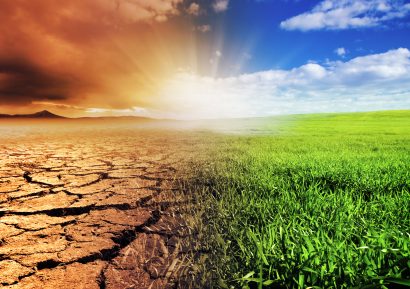Climate Change and Your Vision Health
Written by Dr. David Evans Last modified on August 6, 2018
I read a very interesting article this week in the April edition of EyeWorld about the impact of climate change on eye health. Experts have been debating the potential impact of Global Warming for years, but one aspect that hasn’t received a great deal of attention is the impact it may have on eye health. That’s not to say there aren’t a number of studies evaluating the effects of climate change on vision; simply that the bulk of the conversation is focused more on the larger issue.

The link between the environment and eye health is well established. Seasonal shifts can exacerbate allergies and lead to red, puffy eyes. Airborne pollutants can cause a variety of eye problems such as a chronic dry eye syndrome. Climate change can exacerbate these environmental eye concerns. For example, warm, dry weather could lead to an increase in forest fires. Forest fires dump a great deal of natural pollutants into the air which significantly affect the eyes for those in close proximity.
But as the article detailed, the impact of climate change poses a far greater threat to eye health than dry eye and allergies.
A 2003 study conducted by the World Health Organization (WHO) found that ozone depletion has a direct correlation with several “ocular disorders.” Chief among these disorders is the development of cataracts. (It is estimated that approximately 20% of cataract cases are the direct result of ultraviolet (UV) radiation overexposure.) Unchecked climate change causing further depletion of the ozone layer could therefore yield a significant jump in the incidence of cataracts.
But it’s not just cataracts we have to worry about with regard to climate change. Macular degeneration, cancer of the cornea, photokeratitis, photoconjunctivitis and pterygium are just a few of the ocular disorders that can be caused by UV radiation overexposure.
Climate change is a subject that has some very impassioned voices with regard to what’s causing it, and how to go about fixing it. Regardless of the cause, as a vision health professional, I find the connection between climate change and eye health to be incredibly important and worth further study. In the meantime, always take steps to protect your eyes. Wear sunglasses when you’re outdoors to help protect against UV radiation, and report any changes in vision to an optometrist or ophthalmologist as soon as possible.
Check out the complete article here: http://www.eyeworld.org/article-what-climate-change-could-mean-for-ocular-health
